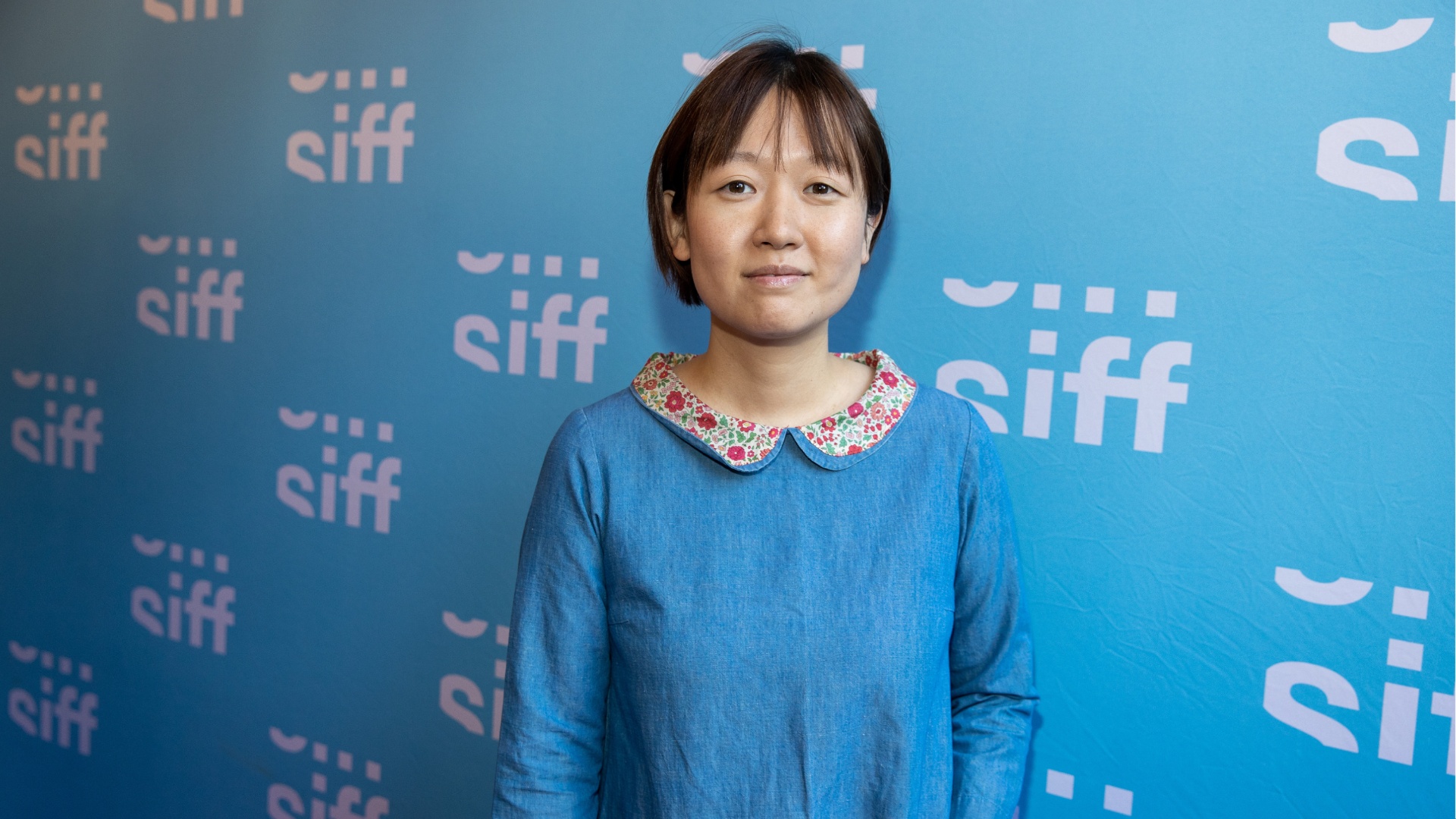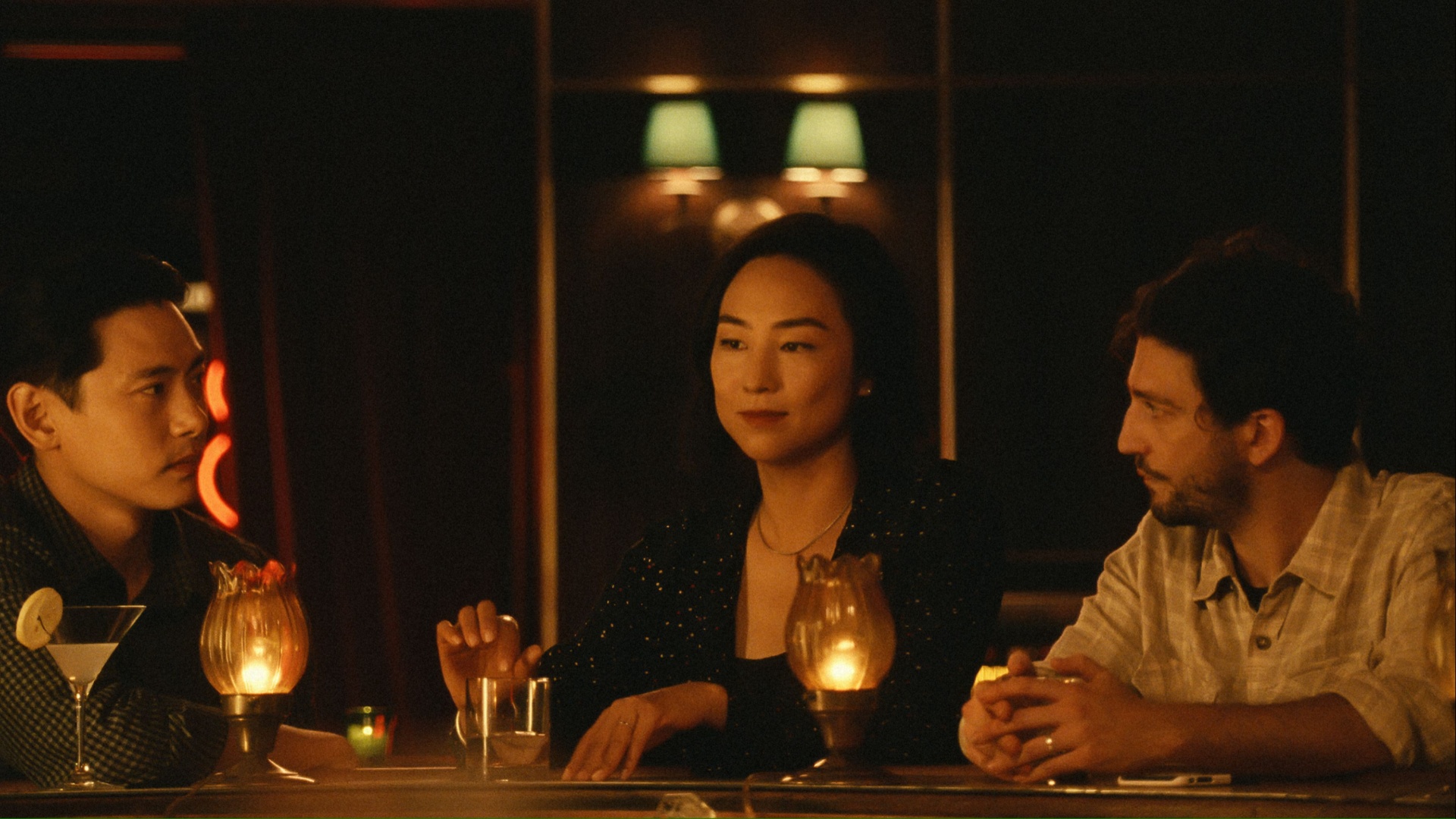
New drama Past Lives may be Celine Song's first movie, but she's no stranger to the director's chair. She's a playwright with an off-Broadway show under her belt – as well as a production of Chekhov's The Seagull recreated on The Sims 4 and broadcast on Twitch during the pandemic. "The transition was pretty direct and smooth," she tells us when we sit down together at Sundance London. "In theatre, something that you're working on every day is story, character, blocking, and dialogue, so those were things I could just pull over… I wanted to see if [filmmaking] was something that I was going to love, and I was so happy to learn that it is."
Past Lives opens in Seoul in 2000 with two 12-year-olds, Nora (Seung Ah Moon) and Hae Sung (Seung Min Yim). They're classmates, fast friends, and there's a hint of tweenage romance bubbling under the surface, too. Nothing comes to fruition, though, because Nora's life is thrown into flux when her family moves across the world to Toronto.
Cut to just over a decade later, Nora (Greta Lee) is studying to become a playwright in New York City when she reconnects with Hae Sung (Teo Yoo) over Facebook, leading to daily Skype calls of increasing emotional intimacy. The film then moves forward another 12 years, and the pair have lost touch again – until Hae Sung pays a visit to a now-married Nora.

For Song, there were two reasons why Past Lives needed to be a movie and not a play: space and time. Seoul and New York City are the anchors keeping Hae Sung and Nora in place and therefore apart from each other, so "it was really important to depict these two different places as vividly as I could," Song explains. "In theatre, time and space are figurative, but in film it's literal. I felt like the story needed to be told literally when it came to aging because you want to be able to remember those little kids, and then to know that those kids grew up to be these grown-ups."
One of these grown-ups is Lee. Best known for her roles as Natasha Lyonne's ditzy best friend in Russian Doll and a helpful AI in Spider-Man: Across the Spider-Verse, Past Lives sees her tap into a quieter and more layered performance. "I'd seen her in many different TV shows and movies and I've always loved her performances," Song explains. "But the tone of a lot of the things that she has done is different from the tone that I was looking for in the movie." However, she recalls how reading a scene from the film with Lee soon convinced her of the kinship between actor and character. "If you can do comedy, you can do anything. I know that she's a great actor, but the thing that I was looking for is like, where's your soul? And how deep does it go? And does it match the character?"
While Nora's second move at 24 may seem less formative than the one at 12 (she's older, the distance between Toronto and New York is shorter than that between Seoul and Toronto, and the cultures are much more similar), Song argues they're equally important. "Nora's immigration as a kid was something that her parents did, therefore it wasn't something that she had autonomy in. But if she immigrates again, and to a city of immigrants, that really establishes her as somebody who is a perennial immigrant. That was really important to depict – she's somebody who moves to pursue her dreams, and I think that really speaks to her character."

As Nora and Hae Sung reacquaint after more than two decades apart, it becomes clear that nothing has really changed between the pair. Woven through the film is the Korean concept of 'inyeon': the idea that lovers have met over and over in past lives. For Nora and Hae Sung, their past lives are not just the ones they don't remember – it's their schooldays in Seoul and their grad school video calls. "He's going to always feel like Seoul to her, she's always going to feel like childhood to him," Song says. "It's as though there's a glow to that person that smells and sounds and feels like the place that you remember."
Elsewhere, there's a different kind of inyeon in the life Nora has built with writer Arthur (John Magaro), a Jewish-American man. Initially sceptical of a newly single Hae Sung's reasons for visiting New York, he knows Nora's childhood friend represents something he never can: her roots in Korea. "In every intimate relationship, there's always going to be a part of them that you don't know. In the case of Nora and Arthur, it is so much more vivid, because what Arthur doesn't know about Nora is something that you can see and feel and it's connected to language and a different culture," Song says. "But we all have a version of that – even if you're from the same town, the other person is an 'other', and that is what's both so beautiful and painful about it. The more you get to know someone, the more you see that that person is an 'other.'"
But Song is adamant that this isn't the core of the film, continuing, "What I really care most about is that Arthur is trying to learn Korean – when he sees Hae Sung for the first time, he says hello to him in Korean, and Hae Sung says hello to Arthur in English. The movie is not about alienation, because I think alienation is just a part of all of our lives. The thing that is moving about these characters is that they are trying, and they care, and they want to be able to understand each other, even if it's only a little bit better."
Past Lives premieres in the UK at Sundance Film Festival: London on July 8, before releasing in cinemas on September 8. For more, fill out your watch list with our guide to the year's biggest upcoming movies.







